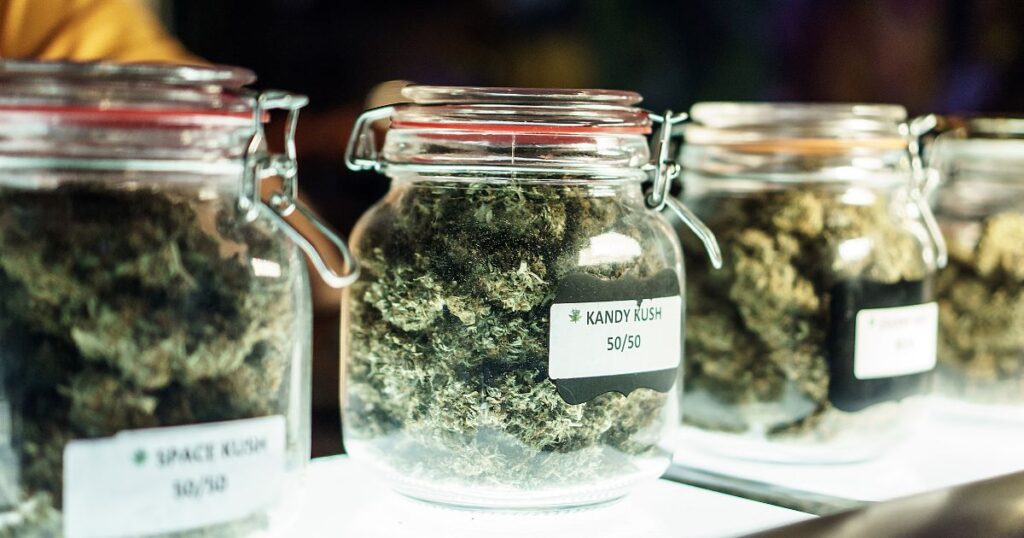Michigan’s cannabis regulators recently sent a notice to marijuana retailers with a truly puzzling request: report customers who possess illegal amounts of cannabis. This directive from the Cannabis Regulatory Agency (CRA) has left shop owners and industry experts scratching their heads, wondering why a state agency would ask businesses to “snitch” on their paying customers. The move is not just confusing; it’s a fundamental misunderstanding of cannabis culture and a slap in the face to an industry already burdened by new, heavy taxes.
The notice reminds retailers of an existing rule to report suspected criminal activity, but then specifically adds that this includes “individual possession of more than twice the amount of marijuana allowed.” In Michigan, a person can legally purchase up to 2.5 ounces of flower and 15 grams of concentrate in a single transaction. Possessing more than double this amount transitions from a civil infraction to a misdemeanor.
This strange mandate creates a bizarre scenario. Retailers are being asked to sell a legal product and then potentially call the police on the very customer who just made a purchase. It’s a policy that seems designed to fail, as it pits businesses against the people who keep them afloat.
A Flawed and Confusing Policy
The CRA’s directive is riddled with vagueness and logistical nightmares. As reported by MLive, the notice doesn’t prohibit stores from selling amounts that would put a customer over the legal possession limit. Some stores facilitate this by splitting a large purchase into two separate transactions. This common practice, especially in border towns attracting out-of-state buyers, is now in a legal gray area.
“You’re not gonna stay in business very long if you start calling the police on your customers—if you’re in any business,” John W. Fraser, a Dykema attorney who advises cannabis businesses, told MLive. This sentiment is echoed by store managers who find the rule nonsensical. One manager explained that his shop requires customers to leave the property before making another purchase. After that, the store has no way of knowing what happened to the product. Did the customer go home, where they can legally possess up to 10 ounces? Or did they gift it to someone?
The policy essentially asks retailers to play dumb while simultaneously acting as informants. It’s a lose-lose situation that undermines the trust between dispensaries and their communities. No one MLive spoke to said they had ever reported a customer for exceeding possession limits, highlighting just how out of touch the regulation is.
The Unspoken Code of Cannabis Culture
What makes this directive even more absurd is its complete disregard for the history and culture of cannabis. For decades, the cannabis community operated underground, bound by an unspoken code of silence and mutual protection. “Snitching” was the ultimate taboo. People risked their freedom to cultivate, distribute, and consume a plant they believed in, and they did it by trusting one another.
Expecting legal businesses, many founded by legacy market operators, to betray their customers now is a profound miscalculation. The community was built on discretion and loyalty, values that persist even in the legal era. Asking a budtender to report a regular customer for stocking up on their favorite product is asking them to betray the very principles that have defined the cannabis movement for generations. It’s not going to happen.
This move shows a deep disconnect between regulators and the community they are supposed to oversee. Instead of fostering a collaborative and safe market, such policies create an adversarial relationship that benefits no one.
Adding Insult to Injury with New Taxes
The timing of this “snitch” request couldn’t be worse. Michigan’s cannabis industry is already reeling from a massive new tax hike. Governor Gretchen Whitmer recently signed a state budget that includes a staggering 24% wholesale tax on cannabis, set to take effect in January 2026. This is on top of the existing 10% retail excise tax and 6% sales tax.
This tax hike makes Michigan one of the most heavily taxed cannabis markets in the country. Industry leaders have warned that this will cripple legal operators and drive consumers back to the unregulated illicit market, where products are cheaper. Adam Hoffer of the Tax Foundation predicted the tax increase will “really hurt the legal market in Michigan.”
So, on one hand, the state is making it harder for legal businesses to compete by levying crippling taxes. Simultaneously, it’s asking these same businesses to alienate their customer base by reporting them to law enforcement. This is, moreover, a baffling strategy that seems destined to weaken the legal market the state claims to support. Therefore, why would any business owner go out of their way to help enforce a confusing rule for a government that is simultaneously taxing them into the ground?
Where Do We Go From Here?
While a few egregious cases of retailers selling massive quantities far exceeding legal limits likely prompted the CRA’s notice, applying a broad “snitch” policy to the entire industry is a clumsy and ineffective solution. The two cases cited by MLive, involving a man with nearly eight pounds of retail product and a store selling 33 times the legal limit of concentrate, are violations per set regulations. However, these are outliers.
Instead, punishing the entire industry and its customer base for the actions of a few bad actors is poor regulatory practice. It creates confusion, mistrust, and ultimately harms the legal market’s ability to thrive. Regulators should focus on clear, enforceable rules that target significant diversion and criminal operations, not on turning everyday budtenders into unwilling informants against customers buying a little extra product.
Ultimately, this situation is a ever-present reminder that as cannabis legalization matures, regulators must work with the industry, not against it. That means understanding its culture, respecting its customers, and creating policies that support a safe, legal, and competitive marketplace for everyone.
- On Sept. 25, Michigan House Reps Passed House Bill 4951
- Is Trump’s So-Called Support for Cannabis Just a Playground Poke at Jeff Sessions?
- Michigan Sets Marijuana Sales Record In 2023, Surpassing $3 Billion
- Record Sales in December Pushes Michigan Adult-Use Market Past $3 Billion
- In Michigan, Legal Weed & Voter’s Rights Draft Blueprint for Political Success Nationwide















